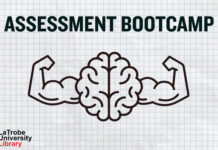Exams are coming up and we’re sure everyone is feeling the pressure to revise before the most important period of the semester.
Our student interns, Hayley and Son, are here to share some study tips to help you feel less overwhelmed about exams!
- Check your timetable!
It seems obvious, but imagine missing your exam because you forgot the time or the venue of the exam? Not a great start!
Make sure that you have a clear understanding of your exam timetable and use a calendar, set reminders on your phone or write the date on a post-it note and pop it on the fridge or bathroom mirror.
- Make a study plan and prioritise your workload
Effective study plans are crucial for effective exam preparation.
We recommend allocating dedicated time slots for each subject and prioritising your workload based on the difficulty and the amount of content to cover for each subject.
- Revisit Intended Learning Outcomes (ILOs)
Take the time to revisit the Intended Learning Outcomes (ILOs) for each subject to understand what’s expected of you. Understanding ILOs will help you focus on the key concepts.
- Utilise Week 12 and SWOTVAC for revision
Week 12 and SWOTVAC (Study Without Teaching Vacation) are valuable periods for revision. So, utilise this time wisely by reviewing your notes and practicing past exam papers to consolidate your knowledge.
- Form a study group
Studying with your friends or subject peers can be super beneficial.
Consider forming a study group where you can exchange ideas, discuss difficult topics and support each other. You might find that working collaboratively will enhance your understanding, provide different perspectives and help you and your friends to identify areas that might need some work.
- Try a study method
Experiment with various study methods to find what works best for you.
Some techniques to consider include:
- reading the texts out loud
- using the Pomodoro method (working in focused intervals with short breaks) and
- flip cards for memorisation.
Find the methods that suits your learning style best to optimise your study sessions. After all, no method is one size fits all and what might work for your friend might not work for you.
- Reach out for support
And remember, you’re not alone on this journey. If you find yourself struggling or needing assistance, don’t hesitate to reach out for support.
Academic resources such as Peer Learning Advisors (PLAs), Studiosity, lecturers and subject coordinators are there to help you succeed. Don’t be afraid to ask for help when you need it.
With these study and exam tips, you’ll be well-equipped to tackle your exams with confidence and achieve your goals. Stay focused, stay motivated and remember that hard work pays off!
Good luck on your exams!
For more information about exams, check out these useful resources, including support services:












